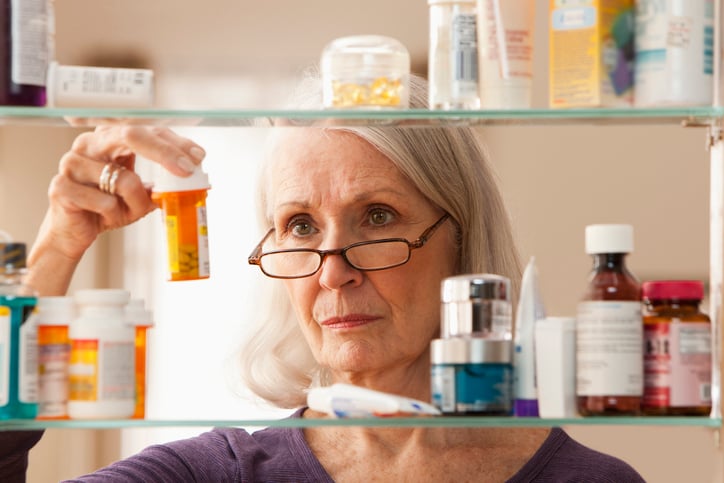Each year, on National ‘Check Your Meds’ day, pharmacists urge patients to review their medications – with their pharmacist’s guidance – to make sure all are still needed and remove any which have expired. This year, that day was on October 21st. But it’s never too late to keep your medications up to date.
It’s also a good idea to take this one step further: anyone who relies on prescription medications should plan ahead for potential natural disasters or other unforeseen events that could otherwise disrupt timely access to important prescriptions.
Here are three important tips for the medication aspect of emergency preparation:
1. Refill Early
Make it a regular practice to refill medications as early as a prescription allows. This helps ensure that you have at least three days’ worth of medications and related supplies on hand if a disaster strikes.
In addition, most state laws allow for early refill of medications when warning for a natural disaster (such as a hurricane) is announced. This “emergency prescription refill” law permits you to refill your prescribed medications if the county where you reside is currently under a hurricane warning issued by the National Weather Service or is in a declared state of emergency by your state’s governor.
2. Make a List
Create and keep a medication list on your mobile device or in your wallet (next to your prescription ID card and health insurance card), so you will be able to refer to it even if you have to evacuate.
3. Store in One Spot
Store your medications together in one accessible location. This will make it easier to bring your prescription medications with you if you have to evacuate. If your medications are temperature-sensitive, keep a small cooler on hand (along with frozen gel packs in your freezer) to grab-and-go.
Medications can be affected by fire, flooding, unsafe water, or lack of refrigeration (if the medication is temperature-sensitive). The Center for Drug Evaluation and Research, which is part of the FDA, issues guidelines for medication management during a natural disaster.
- Flood water: Medications exposed to flood or unsafe municipal water can be contaminated, even if their screw-top caps, snap lids, or droppers are in place. It is recommended to discard and replace any medications that contact flood water.
- Fires: High temperatures can impair the effectiveness of medications. If your medications were in fire conditions, consider discarding and replacing them.
- Power outage: Medications that require refrigeration can be impacted by power outages. Ideally, they would be discarded and replaced if the outage was for an extended period of time since the medication could lose potency. If the drug is essential, it can be used until a new supply can be obtained after the emergency conditions are resolved.
These guidelines may need to be adjusted, of course, to emergency conditions. If a medication is needed in treatment of a life-threatening condition and a replacement is unable to be obtained due to the emergency, then choices become more limited. For example, if the medication appears unaffected (such as the outside container was wet, but the pills inside appear dry) then the medication can be used until replacement medication can be obtained.
Finally, keep in mind that having a relationship with both your retail pharmacy and your specialty pharmacy (for those with specialty medications) can help navigate any questions or concerns during an emergency.
Related Posts
Moving From ‘I’ to ‘We’
Think about the words ‘Illness’ and ‘Wellness.’ Changing the ‘I’ into a ‘We’ can be...
BioPlus Specialty Pharmacy Scales on AWS to Better Support Patients and Healthcare Providers
Building on AWS helps further drive the company’s ‘fast & easy’ promise
Community support is crucial for patients with complex illnesses
"As a kid, I used to hide my bleeds. I hoped to spare my mother from the helplessness of watching...
BioPlus Appeals Team: Changing "No" to "Yes!"
Do you have patients with insurance denials? Here at BioPlus we regularly transform those “no’s”...





